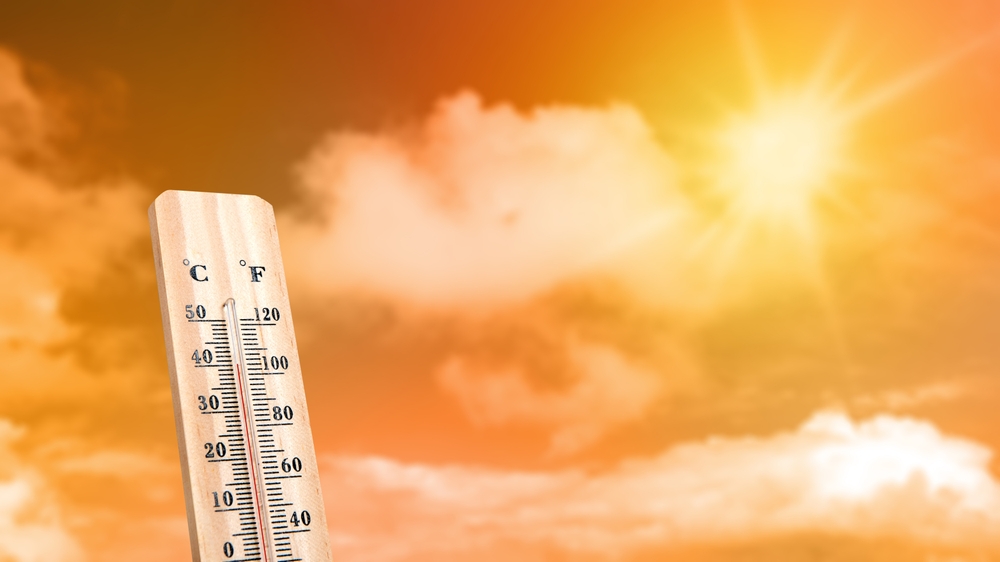Sleep is an essential part of our daily lives, yet it seems to be getting harder and harder to come by. According to a study by the National Sleep Foundation, about one-third of the world’s population suffers from some form of sleep disorder. While there are various reasons why people struggle to get a good night’s rest, one factor that is often overlooked is climate change.
Yes, you read that right. Climate change, the phenomenon that is causing changes in our weather patterns and natural environment, could also be keeping you up at night. Here are four ways in which climate change could be affecting your sleep, and what you can do about it.
- Extreme temperatures
As the Earth’s temperature continues to rise, heatwaves are becoming more frequent and intense. This increase in temperature can make it difficult for our bodies to regulate their internal temperature, leading to discomfort and restlessness.
Furthermore, extreme heat can also increase the risk of dehydration, which can disrupt our sleep quality. When we are dehydrated, our bodies produce less melatonin, the hormone that helps us fall asleep. This can result in difficulty falling and staying asleep, leaving us feeling tired and irritable the next day.
What can you do?
Invest in a good quality fan or air conditioner to keep your room cool during hot nights. If you live in a region that experiences frequent heatwaves, consider installing heat-reflective roofing to reduce the amount of heat entering your home. And of course, always remember to stay hydrated by drinking plenty of water throughout the day.
- Air pollution
Air pollution is not just harmful to our physical health; it can also disrupt our sleep. The tiny particles found in polluted air can enter our lungs and cause inflammation, making it harder for us to breathe. This can lead to breathing difficulties, snoring, and even sleep apnea.
In addition, air pollution can also trigger allergies and asthma, making it difficult for those who suffer from these conditions to get a good night’s rest. The constant sneezing, coughing, and congestion can disrupt our sleep cycle, leaving us feeling tired and groggy the next day.
What can you do?
Invest in an air purifier to help filter out harmful particles in your home. If possible, try to limit your exposure to outdoor air pollution by avoiding busy roads and industrial areas. Additionally, consult with your doctor if you suffer from allergies or asthma to ensure you have the right medication to manage your symptoms.
- Natural disasters
Climate change has also led to an increase in the frequency and intensity of natural disasters such as hurricanes, wildfires, and floods. These events can have a significant impact on our mental health, causing anxiety, stress, and even post-traumatic stress disorder (PTSD).
The trauma and fear associated with these disasters can make it difficult for us to fall asleep and stay asleep. The constant worry and anticipation of another disaster can disrupt our sleep cycle, leaving us feeling exhausted and unable to function properly.
What can you do?
If you live in an area prone to natural disasters, make sure to have an emergency plan in place and be prepared for any potential evacuations. Seek therapy or counseling if you experience any symptoms of PTSD or anxiety. And most importantly, take care of your mental health by practicing relaxation techniques such as meditation or yoga.
- Disrupted natural rhythms
The Earth’s natural rhythms play a crucial role in regulating our sleep patterns. However, climate change has disrupted these natural rhythms, causing changes in sunrise and sunset times, weather patterns, and even migration patterns of animals.
The disruptions in these natural rhythms can throw off our circadian rhythm, the internal clock that regulates our sleep-wake cycle. This can result in difficulty falling asleep at night and feeling sleepy during the day, leading to a condition known as “social jet lag.”
What can you do?
Try to maintain a consistent sleep schedule, even on weekends. This will help regulate your circadian rhythm and improve the quality of your sleep. Avoid using electronic devices before bedtime, as the blue light emitted from screens can suppress the production of melatonin, making it harder for you to fall asleep.
In conclusion, climate change is not just a threat to our physical health and the environment; it can also have a significant impact on our sleep. By understanding the connection between climate change and insomnia, we can take steps to mitigate its effects and improve our sleep quality. So, make sure to take care of your physical and mental health, and do your part in fighting against climate change for a better night’s rest.




